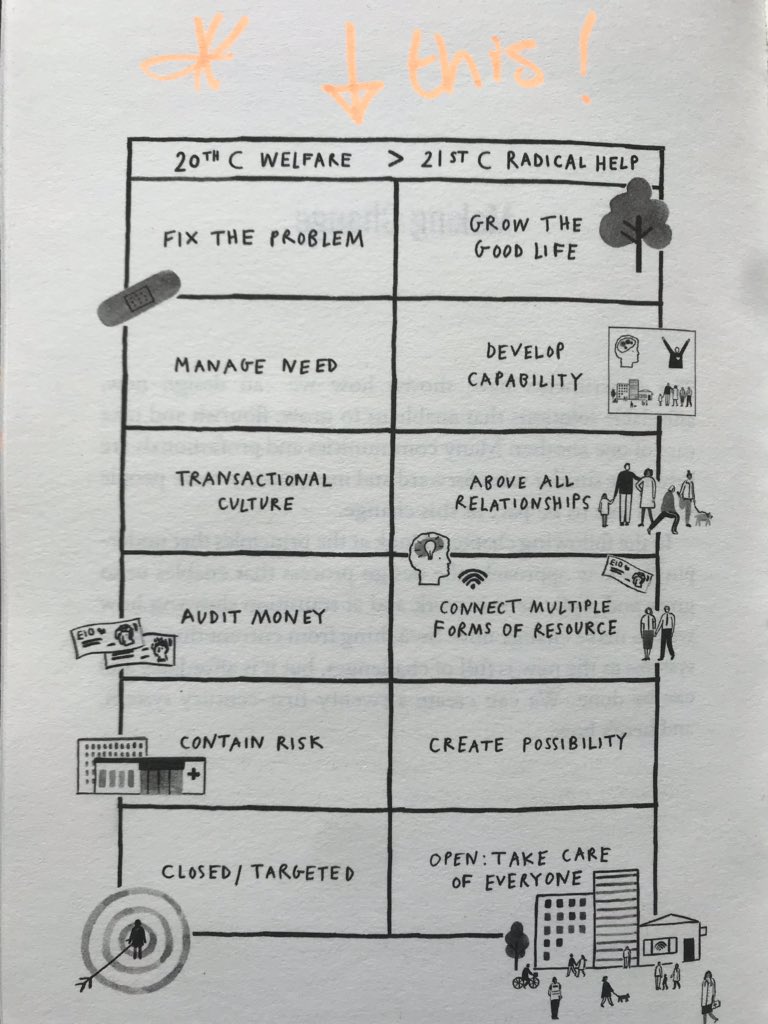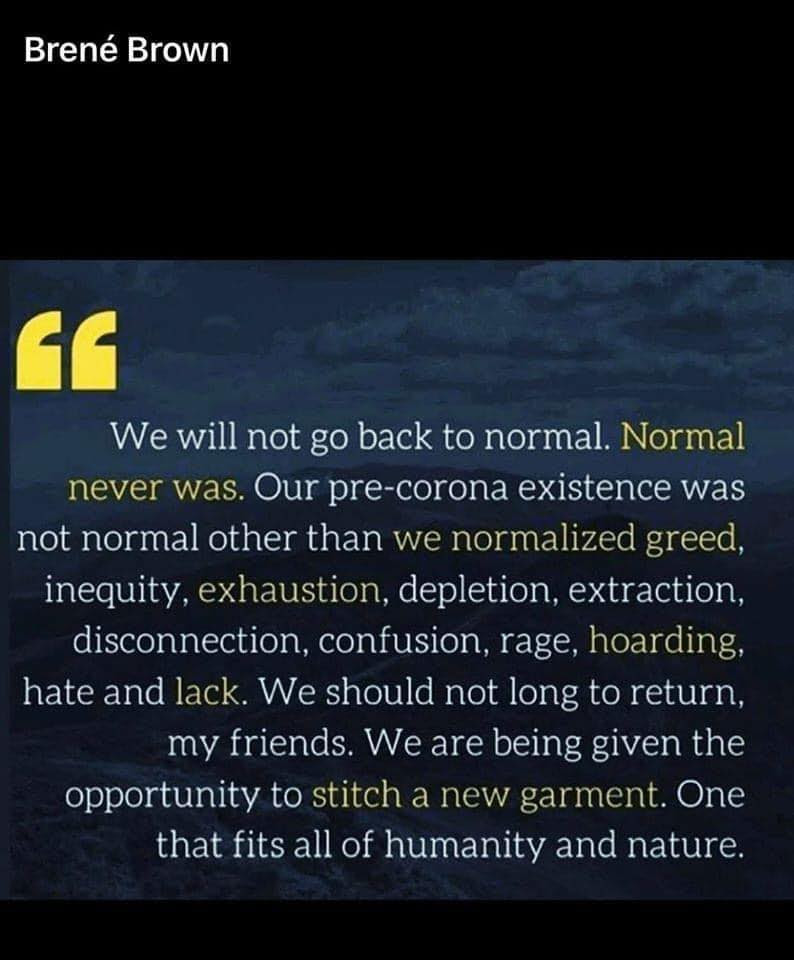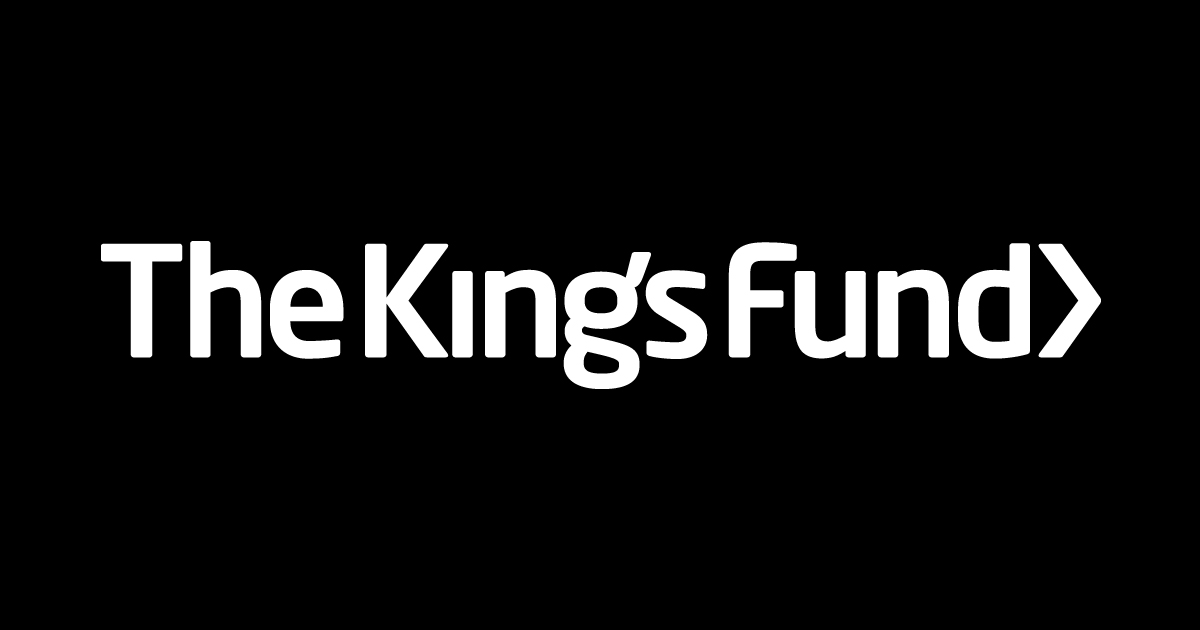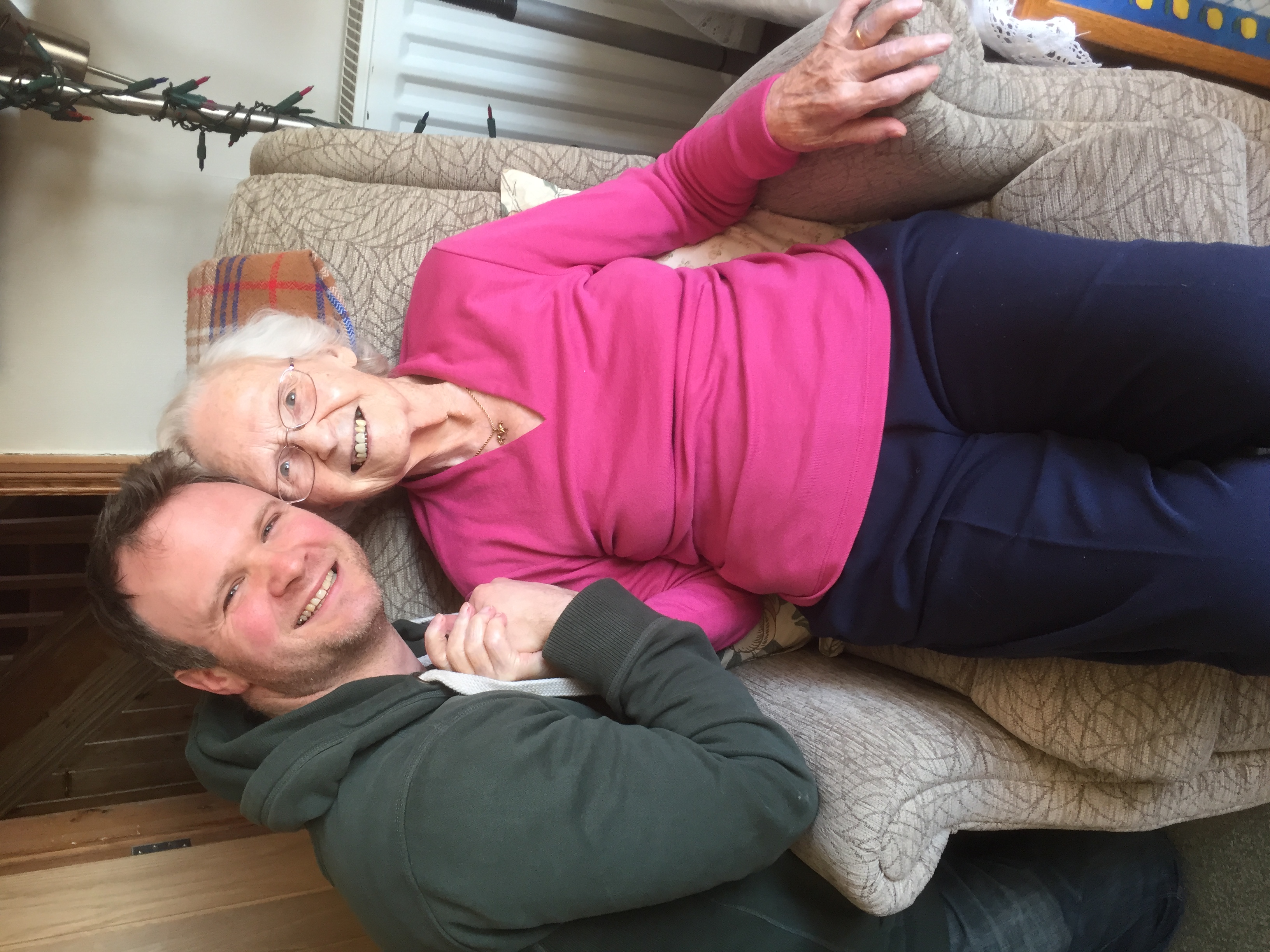So many voices are saying that we can’t go back to how it was. We don’t want to live at the same old exhausting pace anymore. We don’t want to continue to harm our environment nor accept such staggering inequality. This quote below is actually from Sonya Renee Taylor, not Brene Brown!
One of my favourite stories to read my kids when they were younger was ‘The Great Green Forest’ by Paul Geraghty . It talks about the destruction of the Amazon Rainforest and how one day, the man on the digger stops and listens to the forest and realises he can’t do his job any more. He can’t be part of this destructive way. So he gets off and walks home and never returns, whilst the forest envelops his old machine and regenerates. It used to choke me up and the kids would look at me and wonder why I had tears strolling down my cheeks! Our world does not have to be shaped by the idea that we are ‘homos economicus’ – the selfish, self-centred, self-made man of the neo-liberal era. That is OVER! And all neuroscience and developmental psychology points to a very different reality anyway – one that we have perhaps been blind to. The truth is, we’re actually wired for empathy and compassion, but the systems we have created have warped our behaviour. But through all the pain and difficulties of COVID-19, something in our corporate memory has been awoken of our interconnectedness to the family of humanity, other species we co-exist with and the biosphere we co-inhabit together. We simply cannot go back to how things were – everything has changed.
Change doesn’t just happen because we want it to – that’s a good start, but vision alone is not enough! I’ve been spending a bit more time in my garden of late. I love gardening. For me it is the place of my best personal development and growth. Last year, I let the whole garden be fallow – I just left it. This year, when I came to plan what I wanted to grow, I found that I have a lot of clearing to do. There are things I need to “uproot and tear down, destroy and overthrow”, before I can “build and plant”. It’s particularly amazing to me how florid certain weeds, like creeping buttercup, can be! The networks of roots in the soil, take quite a bit of digging out. For me it’s a great metaphor for our mindsets, fixed beliefs, thought patterns and subsequent behaviours. If we’re going to make space for a kinder and more empathic, life-giving way of thinking and being in the world together, then we have to be willing to root out our old ways to make room for that which we want to plant and sow.
To take this garden metaphor further, once the ground is clear, my seeds aren’t going to grow on their own and I’m not going to cultivate a harvest overnight. I am going to have to work the land (thankfully some of this has been done by previous garndeners and I am grateful for what they have sown). I am going to need to build frames to enable good growth and ensure the soil remains cared for and the plants watered. I’m going to have to protect the seedlings from birds, rabbits, slugs, flies and all kinds of other pests, whilst recognising there is providence for them too! There is a tenderness and a ferocity to gardening that helps us to think about how we co-create and labour for the kind of world we want to be good ancestors of.
And so let us do the work together. Let us clear the ground, begin building the frameworks we need to co-create the world our hearts are longing for. In Morecambe Bay, we’ve been thinking about the areas of politics, economics, society and ecology. There are many others, but here are some things we might want to consider and build towards (there is further reading/material to engage with if you feel like going a bit deeper In the hyperlinks):
Reimagining Politics
Patrick Chalmers is currently writing a series in The Correspondent which helps us face up to our own political illiteracy. He invites us to explore together what we mean about politics and how we engage with political ideas, like democracy. Many people have been writing for a number of years about the broken nature of our political system. Well, now we have a chance to reimagine it, let’s grab this bull by both horns and engage with it fully.
Here in Morecambe Bay, we’ve been exploring what it might mean to develop a politics of love and kindness. We agree that the basis of a politics of love is friendship, deep listening and the embrace of the ‘other’. It means loving our enemies, doing good to those who may seem to want to harm us and choosing the way of peace. It involves seven key principles:
- prioritising the poor
- protecting and promoting the wellbeing of children
- instating women to ensure full equality in everything
- caring for the sick
- restorative justice for those in prison
- welcoming strangers – particularly refugees and asylum seekers
- caring for the environment in which we live (locally and globally) by being responsible in how we steward the earth’s resources
What does that mean in practice? It means holding spaces for communities to come together and talk about the issues that really affect them. We’ve found the Art of Hosting really helpful in creating a framework to do this. It means deliberately building relationships with ‘the other’ through initiatives like ‘The Poverty Truth Commission’. It means creating trauma-informed practice and building a culture of hope. Do we dare to do the work required to reimagine, reinvent and reinvigorate this space? Can we throw off our apathy and cynicism and engage with the stuff that shapes how we do life together? We must embrace a politics that is much more local, participatory and engaging.
Reimagining Economics
In Morecambe Bay, we believe that an economy of wellbeing is what we need to build together. This means doing away with stigma and the idealisation of growth at any cost and replacing it with a much kinder way of stewarding the earth’s resources to create sustainability and justice. The New Internationalist is clear – We cannot grow our way out of poverty.
Here is a framework created together by 170 academics In The Netherlands and helpfully summarised by the brilliant Jason Hickel, which provides a hopeful alternative:
- Shift from an economy focused on aggregate GDP growth to differentiate among sectors that can grow and need investment (critical public sectors), and sectors that need to radically degrow (oil, gas, mining, advertising, etc.)
- Build an economic framework focused on redistribution, which: establishes a universal basic income, a universal social policy system, a strong progressive taxation of income, profits and wealth, reduced working hours and job sharing, and recognises care work.
- Transform farming towards regenerative agriculture based on biodiversity conservation, sustainable and mostly local and vegetarian food production, as well as fair agricultural employment conditions and wages.
- Reduce consumption and travel, with a drastic shift from luxury and wasteful consumption and travel to basic, necessary, sustainable and satisfying consumption and travel.
- Debt cancellation, especially for worker and small business owners and for countries in the global south (both from richer countries and international financial institutions).
Hickel is clear. “We have a word for what’s happening right now: recession. Recessions happen when growth-dependent economies stop growing. It’s really important also that we don’t confuse economic de-growth with economic contraction. One is pressing the brakes to avoid a collision. The other is a compete and utter car wreck. When a tree or human or any natural organism reaches full adult size and stops growing we call it “maturity”. We would never call it “stagnation”. That we routinely use the latter term to describe the economy shows that we have no plan, no end in mind… just perpetual expansion. What we need is to build a different kind of economy altogether: an economy organized around human well-being rather than around perpetual growth.” Kate Raworth’s work on the Doughnut Economy is another way we can think about the future. It’s so exciting to see the City of Amsterdam adopting this as their model for the future.
Reimagining Society
Society is built and shaped by our values and what we value. In Morecambe Bay we’ve been reimagining what society might be like if we reassess those values starting with love, kindness and empathy.
To reimagine society we need to reimagine what we mean by the welfare state, or social security. It is broken, but it can be reimagined and indeed has been by my wonderful friend Hilary Cottam in her book Radical Help. Here is Hilary in a brilliant conversation with the world-class Economist Mariana Mazzucato and Tom Loosemore about the reimagining of welfare for the future.
We need a welfare system that is primarily shaped by relationship. Hilary Cottam’s six foundational insights on how to do this are so much food for thought. 
In this one page Hilary exposes everything that is wrong with our current system and gives us the permission and the flexibility we need to reimagine and implement an altogether kinder and more practical solution to the issues we face in the 21st century.
Two of the core pillars of the welfare state (and btw the concept of state needs to be fully reimagined also, if we are to create a just and fair world in which we live in peace together) are education and health. Both need reimagining and there isn’t space in this blog to go into all of this now, but here are some thoughts on where education and health need to move towards, but Hilary’s principles can be applied to these and many other sectors also.
Reimagining Ecology
There are so many incredible voices speaking into this right now and the earth is literally groaning for us to listen to what it is saying to us. Can we listen to the narrative of The Great Green Forest? Will we allow ourselves to be forever changed, to repent of our abusive and unkind domination of the ecology, and turn instead to the gentle stewardship of the land and all living creatures to which we are called? There are so many prophetic figures calling us back to this original purpose of humanity. One of my favourites is Alastair McIntosh. This is well worth a listen, if you’ve not heard him already.
The tectonic plates are shifting. We are moving from a patriarchal, toxic-type of masculine and dominant-sovereign understanding of how we shape the world towards a much more feminine, inclusive, collaborative and empathic one. Embrace it. Nurture it in yourself. Let this fresh wind blow fully in your face and shake off the dust of the past season that clings to you or the cobwebs which pull you back. The future is calling us. Can you hear it? Listen. Take a breath. Open your eyes. See what lies ahead. Link arms in hope and determination. Let’s go there together.



